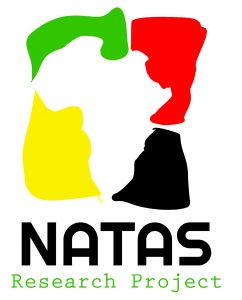Research Project
 The NATAS (Non-adaptation of Adequate Technologies in African Societies) Project will study the internal dynamics and external conditions of the adaptation and non-adaptation of specific technologies. Why do some African societies not adapt certain technologies that would, at first glance, seem more adequate in terms of sustainability, have less (negative) side effects, but more (positive) spin-off effects, and are generally more effective and efficient (value for money)?
The NATAS (Non-adaptation of Adequate Technologies in African Societies) Project will study the internal dynamics and external conditions of the adaptation and non-adaptation of specific technologies. Why do some African societies not adapt certain technologies that would, at first glance, seem more adequate in terms of sustainability, have less (negative) side effects, but more (positive) spin-off effects, and are generally more effective and efficient (value for money)?
The perception and definition of the adequacy of the technologies to be studied are derived from the successful adaptation by other societies which operate within the same or similar parameters.
The project will not start from the perspective that the non-adaptation is an obstacle to externally-introduced development or intervention efforts, but will rather put the focus on the internal dynamics and external contexts, and study the fields of operation onto which the forces of external actors are projected.
The project will take a multi-level approach that will consider the individual, the family, the group, the community, societies, countries and regions as well as international contexts.
The framework and methodology will include many dimensions, such as history, culture, geographic and climate conditions, production systems, logistics and trade, infrastructure, local, regional, national and international policies, knowledge, experience, mindsets and perceptions, religious beliefs, communication processes and behavioural patterns.
The overall goal is to provide a more solid basis for the definition of public policies and intervention strategies on the national, regional and local levels.
Technological topics
The analysis will start with five technologies:
- Post-harvest treatment methods and technologies – traditional and modern;
- Non-motorised transport (NMT, mainly bicycles) – semi-modern;
- Photovoltaic and other off-grid renewable energy technologies – modern;
- Mobile phone-based money transfer, financing and microfinancing service – modern;
- Digital access to knowledge without internet – modern.
Other technologies will be integrated into the study as needs and possibilities arise, allowing for generation of a general theory of factors required and criteria that need to be fulfilled for the adaptation of technologies, both modern and traditional, in African societies.
Geographical limits
For a start, the project will study a limited number of sub-Saharan African countries. In a second phase, it can be extended to other regions.
Expected outcomes
- Produce an encompassing theoretical framework about non-adaptation of technologies in sub-Saharan Africa.
- Develop a methodological framework that will allow the general and specific study of non-adaptation.
- Develop and test a set of toolboxes of methods and techniques for the study of non-adaptation of technologies.
- Case studies in a comparative perspective, i.e. successful adaptation vs. non-adaptation.
- Train researchers at the graduate, post-graduate, master, PhD and post-doctorate levels.
- Increase the research and training capacity of institutions, by deepening the already existing co-operation with some partners that reaches back for more than a quarter of a century and by integrating new partners into the common effort.
- Disseminate the results through a multi-channel approach, integrating partners of the project into international networks that are active in similar areas of research.
Deliverables
- Comparative case studies for each research topic.
- Research toolkits for different research topics and settings, including research design models, detailed and easily adaptable field research plans and corresponding data processing and analysis models.
- Modular manuals for the study of (non-)adaptation of technology.
- Dissertations and theses at all levels of academic training.
- Scientific papers, books and manuals.
- Communication tools for the general interested public (newspaper articles, blogs, podcasts, videos, etc.).
Methodology
As the outcomes and deliverables include a methodological framework as well as adequate toolboxes for the study of non-adaptation of technologies, great emphasis will be given to the selection, application and validation of research methods for the different research topics.
The project will, therefore, draw from a wide range of research methods, participatory and non-participatory, short-term and long-term, from different research disciplines, (social anthropology, sociology, economics, agriculture, environment, etc.) and apply adequate methods on the different sectors and levels (local, regional, national, international) for each topic. For each topic, detailed research plans will be based on triangulation, i.e. the combination of different methods. In a constant effort, all research methods and all triangulation approaches will be constantly tested and validated. This meta-methodological approach will be necessary to produce the methodological framework as well as the specific toolboxes.
Therefore, methods will be validated not only for reliability but also for cost and time constraints and for simplicity of design and application, taking into account available research capacities, such as institutional setups, the level of training and experience of researchers and interviewers, as well as data processing and analysis capabilities in each case. The aim is to develop a wide array of tools that allow, for one, the adaptation of research methods to different research goals for in-depth studies, but also for quick appraisals and more focused and limited research. This wide approach will provide appropriate/better methodology for academic research, for policy formulation, as well as for project studies.
Timeline
The initial project duration will be three years. A follow-up is proposed for the implementation of design and of adequate policies and strategies in collaboration with government and international agencies, as well as with national and civil society organisations and companies.
